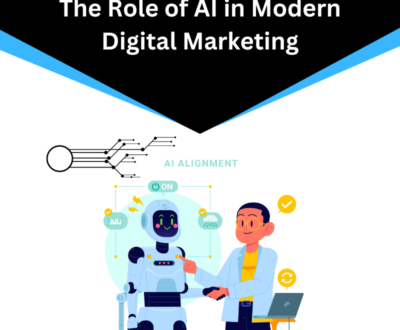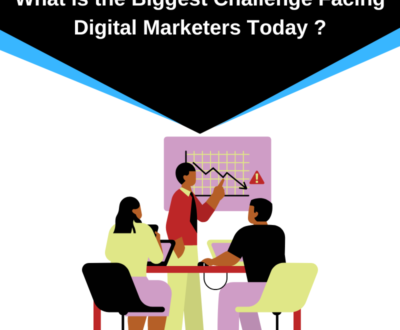
A digital marketer is a professional who uses online platforms and technologies to promote products, services, or brands. The role involves a diverse range of tasks and strategies, all aimed at reaching and engaging target audiences to achieve business objectives. Here’s an in-depth look at what a digital marketer does. A digital marketer expertly researches and utilizes keywords to boost online visibility and attract targeted audiences.
1. Developing Digital Marketing Strategies
Digital marketers are responsible for creating comprehensive marketing strategies that leverage various online channels. This involves understanding the target audience, setting clear goals, and identifying the best channels to use. Strategies often encompass a mix of content marketing, social media, email marketing, Search Engine Optimization (SEO), pay-per-click (PPC) advertising, and more.
2. Managing Content Marketing
Content is central to digital marketing. Digital marketers develop and manage content strategies to engage audiences and drive traffic. This includes creating blog posts, articles, videos, infographics, and other types of content that provide value to the audience. They also oversee content distribution through various channels and ensure that it aligns with the overall marketing goals.
3. Optimising for Search Engines (SEO)
Search engine optimization (SEO) is a key responsibility for digital marketers. They work to improve the visibility of a website or content in search engine results pages (SERPs). This involves conducting keyword research, optimising website content and meta tags, improving site structure, and acquiring backlinks. The goal is to increase organic traffic and improve search engine rankings.
4. Running Pay-Per-Click (PPC) Campaigns
PPC advertising involves creating and managing paid ads on platforms like Google Ads, Bing Ads, and social media channels. Digital marketers design ad campaigns, set budgets, choose keywords, and create compelling ad copy. They also monitor performance, analyse metrics, and adjust campaigns to optimise return on investment (ROI).
5. Managing Social Media
Social media management is a significant part of a digital marketer’s role. They create and execute social media strategies to build brand awareness, engage with followers, and drive traffic to websites. This includes crafting and scheduling posts, running social media ads, engaging with followers, and analysing social media metrics to assess performance.
6. Email Marketing
Digital marketers develop and manage email marketing campaigns to nurture leads and engage existing customers. This involves creating email content, segmenting email lists, setting up automated workflows, and analyzing open rates, click-through rates, and conversions. The goal is to deliver relevant content to the right audience at the right time.
7. Analysing and Reporting on Performance
Data analysis is crucial in digital marketing. Digital marketers use various tools, such as Google Analytics, to track and measure the performance of their campaigns. They analyse metrics like website traffic, conversion rates, click-through rates, and ROI. This analysis helps them understand what’s working, identify areas for improvement, and make data-driven decisions.
8. Customer Relationship Management (CRM)
Effective customer relationship management (CRM) is essential for maintaining and building customer loyalty. Digital marketers use CRM systems to track interactions with customers, segment audiences, and personalize communication. They aim to enhance customer satisfaction and encourage repeat business through targeted marketing efforts.
9. Collaborating with Other Teams
A Digital marketer Do often work closely with other teams, such as sales, product development, and design. Collaboration ensures that marketing strategies are aligned with overall business goals and that campaigns are consistent with the brand’s messaging and identity. For example, they may work with designers to create visually appealing ads or with the sales team to align marketing campaigns with sales objectives.
10. Keeping Up with Industry Trends
The digital marketing landscape is constantly evolving with new technologies, platforms, and trends. Digital marketers must stay informed about the latest developments to remain competitive. This includes understanding changes in search engine algorithms, emerging social media trends, and new tools or technologies that can enhance marketing efforts.
11. Conducting Market Research
Market research is a foundational aspect of digital marketing. Digital Marketers conduct research to understand market trends, consumer behavior, and competitive landscapes. This research helps them make informed decisions about target audiences, marketing strategies, and campaign execution.
12. Managing Budgets
Digital marketers are often responsible for managing marketing budgets. They allocate funds to various channels and campaigns based on their potential return on investment. Effective budget management ensures that resources are used efficiently and that marketing efforts deliver maximum value.
13. Building and Managing Online Communities
Engaging with online communities is another important aspect of digital marketing. Digital marketers build and manage communities on platforms like Facebook Groups, Reddit, or industry-specific forums. They facilitate discussions, address customer inquiries, and foster a sense of belonging among community members.
14. Implementing Conversion Rate Optimization (CRO)
Conversion rate optimization (CRO) focuses on improving the percentage of visitors who complete a desired action on a website, such as making a purchase or signing up for a newsletter. Digital marketers use techniques like A/B testing, user experience (UX) improvements, and call-to-action (CTA) optimization to enhance conversion rates.
15. Managing Influencer Marketing
Influencer marketing involves partnering with influencers to promote products or services. Digital marketers identify relevant influencers, negotiate partnerships, and manage campaigns. They leverage influencers’ reach and credibility to enhance brand visibility and credibility.
More from our blog
See all postsRecent Posts
- On-Page SEO: A Comprehensive Guide October 14, 2024
- The Role of AI in Modern Digital Marketing October 10, 2024
- The Four C’s of Digital Marketing. September 11, 2024









Pingback: Why choose a career in Digital Marketing ? - Jeet Shekhawat
Pingback: Are Digital Marketing Jobs In-demand ? - Jeet Shekhawat